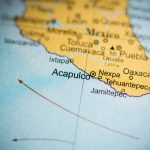Cannabis Legalisation Is Inevitable: An Interview With ADLaRI’s Ben Mostyn

Global drug prohibition had its beginnings over a century ago. And the intensification of its law enforcement aspect – known as the war on drugs – was launched by Nixon in 1971. In NSW, this prohibitive system is reflected in the Drug Misuse and Trafficking Act 1985.
Section 10 of the Act outlaws drug possession. This can potentially see an individual imprisoned for up to two years for having of a small amount of cannabis for personal use. Section 12 makes drug use illegal. A person can be sent away for up to two years just for smoking a joint.
But, there’s a growing number of former top officials who were once involved in enforcing these laws that are now proclaiming this system is broken. Take the Australian 21 drug report from last year. It recommends that Australia progresses towards a legalised and regulated drug market.
The members of the roundtable that produced the report include former Australian federal police commissioner Mick Palmer, retired NSW Supreme Court Justice Hal Sperling and former NSW Director of Public Prosecutions Nicholas Cowdery.
Just legalise it all
Cannabis is the obvious first choice that people go to when discussing the prospect of dismantling prohibition, as in some jurisdictions around the globe, the plant has already been legalised for recreational use.
The United States instigated global drug prohibition. But, today, nine US states and the District of Columbia have legalised cannabis for pleasurable purposes. And Canada is currently setting up a system where the drug will be available retail nationwide.
The Victorian parliamentary Inquiry into Drug Law Reform report was released last March. It recommends that the state government investigate international developments in the regulated supply of cannabis for recreational use with an eye to setting up a similar market in Victoria.
This proposal sent many into a tizz wondering whether Victorian authorities could simply decide to legalise the plant. Questions were asked as to whether federal laws would prevent it, or whether the UN drug treaties could pose a barrier.
The international framework
The 1961 United Nations Single Convention on Narcotic Drugs is the key treaty of the modern prohibition system. It consolidated a series of international drug treaties that came before it, including the 1925 Geneva Convention.
And further developments led to the establishment of two more international drug control treaties: the 1971 UN Psychotropics Convention and the 1988 UN Trafficking Convention. Australia has ratified all three international agreements on drug prohibition.
Bringing about the shift
The UNSW Australian Drug Law Reform Initiative (ADLaRI) is a project that was formed at the end of 2011. It’s comprises of a number of academics and lawyers, who share the aim of bringing about drug law reform in this country, along with the social justice that would accompany it.
Sydney Criminal Lawyers® spoke to Ben Mostyn, a lawyer and founding member of ADLaRI, about the effect the international drug control treaties have on Australian laws, whether there are barriers to establishing regulated drug markets in this country, and how cannabis legalisation is inevitable.
Firstly, the 1961 UN Single Convention on Narcotic Drugs is the main international agreement on drug prohibition. Mr Mostyn, can you briefly outline what this document established and the impact it’s had?
It’s called the Single Convention because there were so many drug conventions at the time, and they wanted to bring them all together. There were about nine or ten separate drug conventions before the treaty.
It effectively established global prohibition. And the war on drugs they’ve been waging since then.
It created a scheduling system for drugs. There are four schedules. Each schedule defines drugs differently. Schedule 4 is the most serious. Schedule 4 is defined as a drug that is particularly liable to abuse and to produce ill effects, and that liability is not offset by substantial therapeutic advantages.
Most controversially, cannabis was added to schedule 4 in 1961. So, it was considered at the time to be a drug that was particularly addictive and with no medical advantages.
Two more UN drug treaties followed: the 1971 Psychotropics Convention and the 1988 Trafficking Convention. Why were these further treaties seen to be necessary? And what did they put in place?
The 1971 Psychotropics Convention was primarily a response to the 1960s. It’s a great irony of global drug policy that the Single Convention was signed in 1961 literally right before the biggest explosion in recreational drug use the world has ever seen.
So, in recognition that global drug prohibition had the complete opposite effect of what the intention was, they tried a new convention in 1971. And it was mainly a recognition that all these new drugs had been discovered in the 1960s.
Because of the great explosion in drug use in the 60s all sorts of new recreational drugs were discovered or created – things like amphetamines and LSD – that needed to be added to the global drug prohibition.
Then we see the pattern repeating. By 1988, the two earlier conventions had clearly not had the desired impact on the global drug trade. And the world was in yet another drug epidemic, primarily the 1980s crack epidemic in the United States.
The Reagan administration called drug trafficking a threat to national security. And the administration invaded several countries in Latin America – Bolivia, Colombia, Panama – to try and defeat the drug cartels.
Basically, the ’88 convention is seen as an attempt by America to get the whole world on board with its anti-cocaine campaign.
What’s interesting is, if you look at the 1961 Single Convention, the preamble talks about drugs being a serious evil for the individual. By 1988, the preamble to that convention is talking about how drugs are a national security threat.
You’ve said that it’s impossible to understand drug laws in Australia without first considering these international treaties. How would you say that the UN international drug control treaties have shaped state and territory laws in Australia?
When you look at the history of Australian drug policy in Des Manderson’s From Mr Sin to Mr Big, his take is that prior to the Single Convention Australia didn’t have a drug problem.
When countries like America and Britain came to Australia to tell us to crack down on drugs, our response was basically, “Look, we don’t have a drug problem, so we may as well pass these laws just to keep the international community happy.”
In many ways, Australia was just following global policy, because we didn’t really have a problem.
By the 1988 convention, Australia was leading the world. And we were taking an active role in global drug prohibition. In many ways, our drug laws had gone well beyond what was required by the drug conventions.
These days, we have extremely punitive drugs laws that go beyond what is required by the United Nations.
And at the federal level, Australia has drug laws in place that include restrictions around importing and exporting. How are the international treaties reflected in Commonwealth laws? And how do these laws operate?
Traditionally, the Commonwealth has not been involved in criminal law. They don’t have a head of power in the constitution to have criminal law. So, the Commonwealth needs to look to another way to get the authority to pass these laws.
One way they can get the authority to pass these laws is through what’s called the treaty power or the foreign affairs power. The conventions actually give the Commonwealth the authority to pass criminal laws.
The test for the foreign affairs power is whether it’s a truly international issue. And the courts have said that the global drug trade is a truly international issue, therefore the Commonwealth can pass drug laws under the foreign affairs power.
In reality, the Australian federal police doesn’t really prosecute low-level drug offences. As you say, they mainly prosecute the custom offences: the importing offences. They’re not really going after the low-level drug offences.
But, they do have authority. And the Commonwealth has said to the states in the past, “If you don’t continue to have strong anti-possession laws, if you don’t continue to criminalise drug possession, we can then use the treaties to criminalise drug possession ourselves.”
Over recent years, there’s been a growing acknowledgement that the system of prohibition and the drug war have failed. In Australia, we now have former top-level officials calling for the establishment of a legal and regulated market.
In your understanding, are there barriers in place that would restrict states from establishing a regulated drug market? For example, is it possible now to simply legalise a drug like cannabis in a jurisdiction like NSW?
The simple answer is yes. The NSW parliament can pass any law it wants. And it can remove any law it wants. So, if the NSW parliament wants to remove section 10 of the Drug Misuse and Trafficking Act – if they want to remove the offence of drug possession – the parliament can do that.
It then becomes a bit more of a political question: would the Commonwealth step in? As I said, the Commonwealth does have authority to pass drug possession laws under the treaties.
Then we would be facing the situation that they’ve had in America. With the states in America that have legalised cannabis, one of the central questions has been, will the central government step in? And in America the federal government has chosen not to step in.
My prediction is if a state government legalised cannabis, the federal government probably wouldn’t step in, because it would be an unpopular thing for them to do.
You’ve just touched on this, but jurisdictions around the world that are a party to the UN international drug treaties have been legalising cannabis. How are these governments able to do this?
The simple answer is that they’re clearly in breach of the United Nations conventions. But, what people need to understand is these conventions are basically unenforceable.
Countries can pass any drug laws they want. And countries can legalise drugs any time they want. And the United Nations can’t do very much to prevent that from happening.
So, really the strongest argument against doing that from an international law perspective is that you may get a bad reputation internationally, or countries like to respect international law to make sure that other countries respect international law.
But, effectively, there’s nothing that anyone can do to stop them from legalising drugs.
As you’ve said, our current laws reflect the UN treaties, which in turn are a result of international agreements some of which were ratified over a century ago now. What would you say are the outcomes of these treaties have produced?
In my opinion, the outcomes of the global treaties have been absolutely catastrophic. They’ve been a main cause of mass incarceration in America, Southeast Asia and South America. Literally, millions of people are going to gaol every year, along with millions and millions of arrests.
We’ve also seen probably hundreds of thousands of preventable overdose deaths, because people are buying opiates on the black market.
We’ve seen a huge amount of violence funded by the drug trade. In Mexico, they’ve had 150,000 murders around the drug trade. More people have actually died in the war on drugs in Mexico than in Iraq and Afghanistan combined.
We also know that black market opium is funding the Taliban: about 60 percent of the Taliban’s funding in Afghanistan comes from illegal drugs. It’s actually a main source of the violence and conflict in Afghanistan as well.
And lastly, you acknowledge that the law enforcement model that prohibits and criminalises drugs is broken. In your opinion, Mr Mostyn, what’s the way forward? How is progressive change going to come about?
That’s the million dollar question. Most experts and most people in the community recognise that drug prohibition is broken. Most people in the community don’t really agree with sending drug users to prison.
Everyone agrees that the current system is broken, but very few people can agree on what the way forward is.
In my opinion, we should regulate all drugs. And then provide a different model for each drug. So, there would be a different regulatory model for heroin. There would be a different regulatory model for cocaine. And a different one for MDMA and for cannabis.
That’s what I think the normative drug policy should be. That’s the best way to reduce the death and destruction caused by the global drug trade.
How is progressive change going to come about? Canada, California, Oregon and Colorado have all legalised cannabis. And New Zealand is going to have a referendum next year or in 2020 about whether or not cannabis should be legalised.
If that referendum is successful in New Zealand, I think it will be completely unsustainable for Australia to continue to criminalise cannabis.
Canada, California, New Zealand: every English-speaking country on the Pacific will have a regulated cannabis market.
And in Australia, we won’t be able to continue to send people to prison for two years for cannabis possession or 20 years for cannabis supply, when that behaviour is completely legalised and regulated by all our closest neighbours.
And that’s probably going to be the big stepping stone. California and Canada have only done it recently. So, the change hasn’t come through to Australia yet. But, if New Zealand gets up next year, it’s absolutely inevitable.







